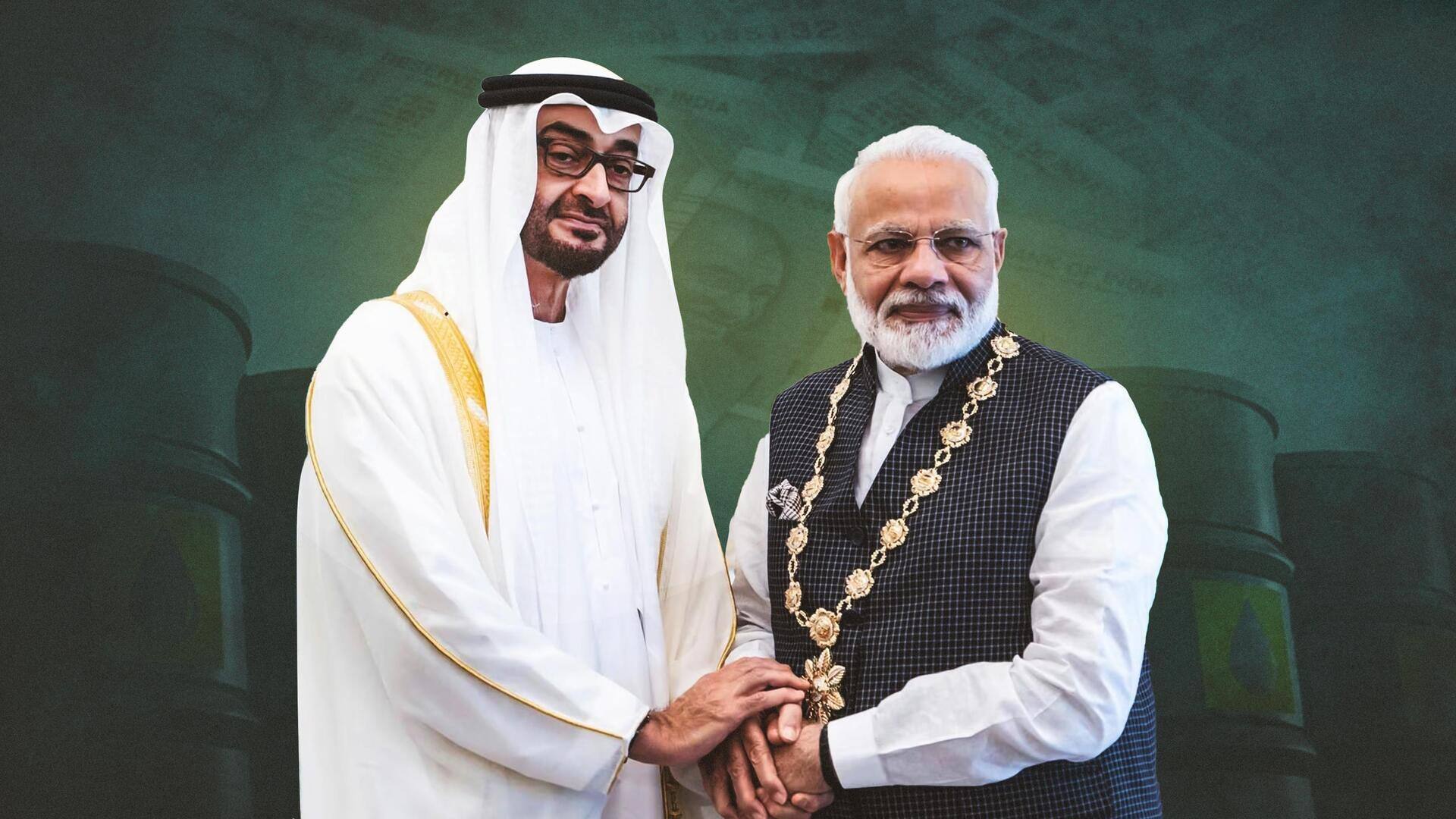
How oil settlement in local currencies will improve India-UAE trade
What's the story
In a significant development, India and the United Arab Emirates (UAE) completed the first-ever crude oil transaction under the newly implemented Local Currency Settlement (LCS) system. It involved the sale of one million barrels of crude oil using both Indian rupees (INR) and UAE dirhams (AED). This will likely have a transformational impact on the bilateral economic relationship between the two countries.
Details
Settlement to help in larger economic engagements
The LCS settlement involved the Abu Dhabi National Oil Company (ADNOC) and the Indian Oil Corporation Limited (IOCL). It was done under a memorandum of understanding (MoU) signed by Prime Minister Narendra Modi in the UAE last month. "LCS is likely to have a transformational impact on the bilateral economic relationship and in the larger economic engagements," the Indian mission in the UAE said.
Benefits
Surplus currencies can be invested in other assets
The LCS method reportedly allows traders to choose their payment currency based on mutual agreement. Furthermore, the transactional surplus balance in local currencies can be invested in a variety of assets, such as corporate bonds, government securities, and equities markets. The new method also has the potential to transform India-UAE economic relations and global economic engagements.
Information
LCS expected to reduce transaction costs, time
Additionally, the LCS system is expected to reduce transaction costs and time, as well as increase reliance on local currencies. This will add to the preferential terms accruing from the Comprehensive Economic Partnership Agreement (CEPA). A CEPA is a free trade agreement between two countries.
Trade prospects
UAE major supplier of crude oil, LNG, LPG
According to reports, petroleum and petroleum products account for a significant share of bilateral trade between India and the UAE. Petroleum product trade reportedly accounted for 41.4% of total bilateral trade volume last year, totaling $35.1 billion. The UAE is India's fourth-largest supplier of crude oil and its second-largest source of liquefied natural gas (LNG) and liquefied petroleum gas (LPG).
Facts
First LCS transaction between India, UAE in gold
Before the first oil transaction between the ADNOC and IOCL, the two countries also exchanged gold under the LCS. The transaction involved the sale of 25kg of gold from a prominent UAE gold exporter to a buyer in India, with the invoice totaling approximately Rs. 12.84 crore. This successful gold transaction probably pushed the LCS mechanism forward, demonstrating its feasibility and efficiency.